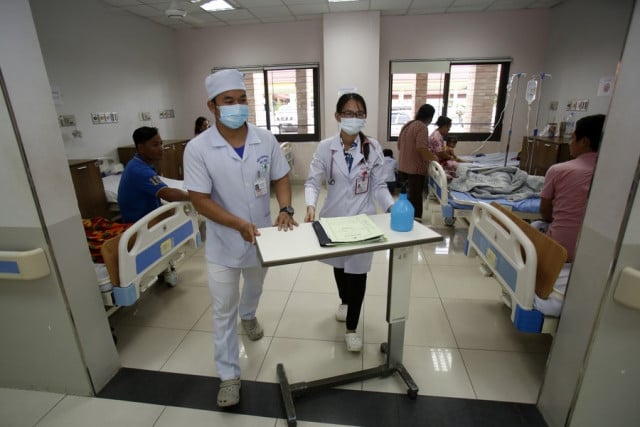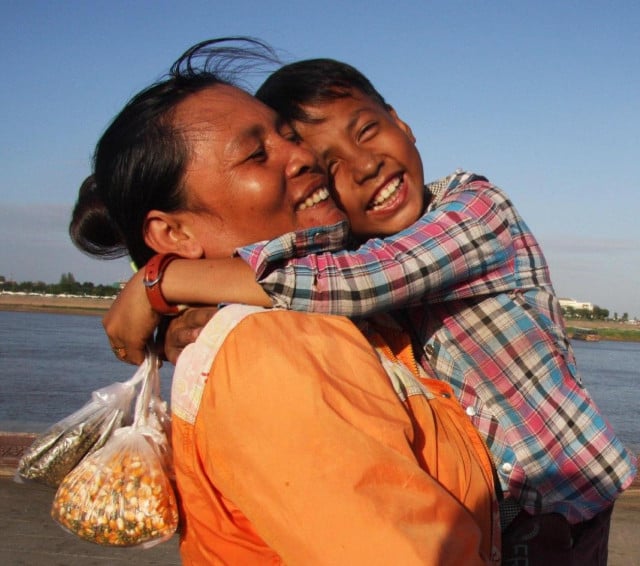Opinion: Cambodian’s Health Check-Up during the COVID-19 Pandemic

- Seun Sam
- November 23, 2020 3:57 AM
Before the outbreak of COVID-19 at the end of 2019, many Cambodians were going to Thailand, Vietnam, Singapore and countries in Europe regularly for their health checks.
The wealthier Cambodians and senior officials tended to travel to France and Singapore for medical treatment and health check-ups, whereas the emerging middle class were more likely to choose Vietnam and Thailand for the treatment of illnesses. But for many low income families, the only choice has been local health centers or hospitals in Phnom Penh.
Generally speaking, there are many reasons why people go abroad for medical treatment, but two important reasons are more common among the Cambodians. Firstly, many have criticized the ethics and capacity of the local doctors who work in state-owned hospitals and health centers. Secondly, for many Cambodians, the decision to seek medical care abroad also presents the opportunity to travel at the same time.
Another generalization is the lack of modern medical technology and facilities in Cambodia, which are—on average—not as advanced as those available in neighboring countries.
According to an article entitled “Cambodia's medical system is due for a check-up”, the Health Strategic Plan 2016-2020 reveals that there are approximately 1,000 public healthcare facilities and 8,000 private healthcare facilities or providers across Cambodia.
This means there are many government doctors who run their own clinics at home, and sometimes they do not come to work at the public hospitals during office hours because they are busy working at their private clinics.
For now, a question which should be asked during the COVID-19 pandemic is where are the people who usually go abroad for healthcare? We can say that they may go to hospitals and clinics inside the country, but do they really trust the hospitals or clinics where they are receiving these medical services?
As a matter of fact, Cambodian doctors should strengthen their capacities in health treatment and should also adjust their behavior when citizens seek medical services or consultancy. The Royal Government of Cambodia should also create new rules with a stricter implementation mechanism on medical doctors in the country, every single year Cambodians spend large amounts of money on healthcare services provided by neighboring countries. Most importantly, the malpractice of local doctors also risks killing innocent people in entirely avoidable situations.
One way to further encourage people to receive their healthcare within Cambodia would be for high-ranking government officials to lead by example and seek their own treatment in their country, rather than going abroad. It’s very important for such officials to help stimulate a national change in behavior, but it would also mean that Cambodian doctors would be more likely to pay greater attention and be more cautious overall if they knew they were treating high-ranking officials. This could, quite possibly, bring about serious improvements in the medical profession nationally.
At the same time, if we go to a health center in the rural areas, sometimes we see only one or two doctors who permanently stay at their office, and sometimes there is no doctor at all on standby at night time. When villagers get sick or need treatment at night time, they cannot find a doctor at the local health care center, forcing the villagers to go directly to the doctor’s house.
Moreover, some healthcare centers in the rural areas do not even have ambulances or vehicles that can safely carry patients to hospitals in nearby towns or cities. This makes it more difficult to save lives and while it may seem trivial to those who have never been forced to rely on local healthcare facilities, it is an important issue to which the government needs to pay more attention.
For the families who have lost a loved one due to these deficiencies in Cambodia’s healthcare system, there is a much greater sense of urgency and none of us know when we will need a doctor to competently care for us or a family member.
Dr. Seun Sam is a researcher at the Royal Academy of Cambodia. All views in this article are his own.















